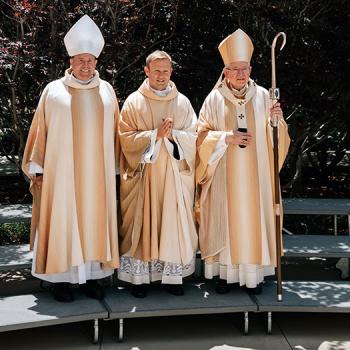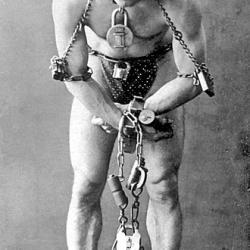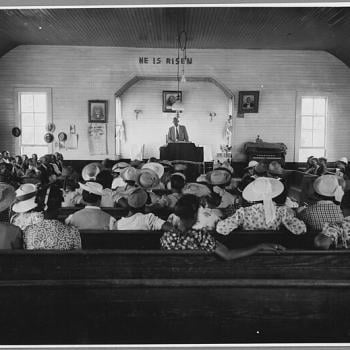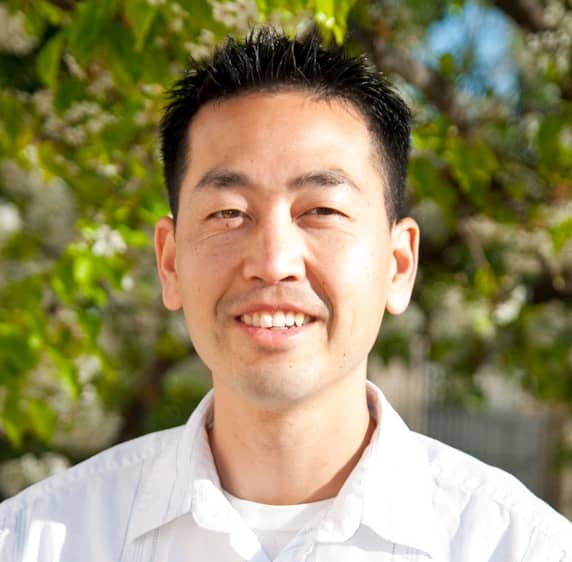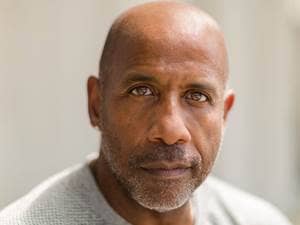
Saying “No” like Jesus often means that we will even say “No” to ministry.
The first key for doing so is to remember the wonders of God. The second is to remember the weakness of man. Jesus himself recognized the limitations of his frail, human body. So, he took time to rest and pray.
He did not help each person who came to him (e.g., John 5) and even said “No” for a time when Mary and Martha implored him to heal their brother Lazarus (John 11). Once, Jesus fell asleep exhausted in the boat while the sea outside was raging with storm (Mark 4:38). Another time, he sat beside a well when he was wearied from the journey (John 4:6) and asked the woman for water to quench his thirst (v. 7). Jesus never tried to do it all.
He would leave one town to minister in another when he couldn’t be in both places at once (Mark 1:36-39). He never travelled the world or even left the tiny confines of Palestine. He did not live in other centuries, but ministered only three short years in his earthly body. Jesus then said “No” to doing it all himself when he charged his disciples with the fledgling church and told them to finish what he started (John 14:12).
Application Insight: In your frailty, you must also learn to say “No” like Jesus, for the Creator still upholds the universe even when you don’t say “Yes” to every opportunity. You are not all-powerful, but have limited resources as a finite human being. Therefore, you must say “No” to certain ministries in order to say “Yes” to others. Even Spurgeon recounts how he stepped back from ministry when he battled his depression.[1] It pained him not to be able to preach, but he knew that rest was more necessary for the moment.
God has not called us to say “Yes” to every ministry. We should care about all suffering, of course, especially eternal suffering. Yet caring is not the same as doing, for we cannot solve every problem we encounter: refugee ministry, human trafficking, homelessness, disabilities, etc. Instead, we cheer on those who serve in other gospel-centered ministries and pray for God to grant them kingdom inroads. Yet God may call us to a different task (e.g., John 21:21-22).
As one writer explains, “Saying No is not just a good idea—it has now become a mathematical necessity. Without this two-letter word, I doubt that regaining margin is possible. If there are fifteen good things to do today and you can only do ten of them, you will need to say No five times. This is not rocket science but kindergarten logic.”[2]
We say “No” as finite creatures, but also as a way to love our neighbor as ourselves. Wisely saying “No” is not an act of selfishness, but rather self-care so that you can better serve God and others. As Eugene Peterson paraphrases Romans 12:11, “Don’t burn out; keep yourselves fueled and aflame.”[3] Burnout causes pastors to resign, burdens children with too many extracurriculars, and turns caretakers into martyrs.
Application Insight: Humbly seek help from others and be intentional about self-care. You will serve others more effectively when you are well-rested and well-loved, for self-care is the first step in caring for others.
The two keys for saying “No” to ministry are to remember God’s wonders and to remember man’s weakness. In his book, Zeal without Burnout, Christopher Ash makes four comparisons between God and man to emphasize these truths.(4) First of all, man needs sleep, whereas God does not. Psalm 121:3-4 reveals that God never sleeps, so that we can sleep in peace. As Solomon writes, “It is in vain that you rise up early and go late to rest, eating the bread of anxious toil; for he gives to his beloved sleep” (127:2). Sleep is an act of humble trust which declares to God, “I can’t do it all myself. My life and its results are dependent on the Lord.” Certainly, the Bible commends hard work (Rom 16:3, 6, 9, 12) and sacrifice for the sake of Christ (2 Cor 6:4-5; 11:23-28; Rom 16:4). Yet at some point, we all must go to bed and trust God with our ministry.
When we do not sleep, we disrespect the Creator who designed our bodies to shut down for one-third of every day. As John Piper writes, “Sleep is a daily reminder from God that we are not God. . . . Once a day God sends us to bed like patients with a sickness. The sickness is a chronic tendency to think we are in control and that our work is indispensable. To cure us of this disease God turns us into helpless sacks of sand once a day.”[5] We need sleep to function effectively because “the cognitive impairment that results from being awake for twenty-four hours is higher than the drunken-driving limit in all states.”[6] Sleep deprivation causes accidents and increases mistakes. It results in sick days and loss of production. So getting adequate sleep is one way we love our neighbor. Sleep also makes us more agreeable as lack of sleep increases our likelihood for depression, severe anxiety, and overall crankiness.[7]
Application Insight: Sometimes insomnia can be a medical problem, requiring the aid of a sleep doctor. Sometimes the problem is spiritual, requiring counseling or discipleship. Yet sometimes you have poorly stewarded your time and need practical wisdom to develop better habits. Ask for help because man needs sleep, whereas God does not. Second, man needs Sabbath rest, whereas God does not.
God made us to rest one day in seven and established that pattern from creation: “Thus the heavens and the earth were finished, and all the host of them. And on the seventh day God finished his work that he had done, and he rested on the seventh day from all his work that he had done. So God blessed the seventh day and made it holy, because on it God rested from all his work that he had done in creation” (Gen 2:1-3). Did God need rest himself? No, the sovereign God is always at work (John 5:17). Yet he established rest as a pattern for us and even instituted Sabbath rest as one of the Ten Commandments:
Remember the Sabbath day, to keep it holy. Six days you shall labor, and do all your work, but the seventh day is a Sabbath to the LORD your God. On it you shall not do any work, you, or your son, or your daughter, your male servant, or your female servant, or your livestock, or the sojourner who is within your gates. For in six days the LORD made heaven and earth, the sea, and all that is in them, and rested on the seventh day. Therefore the LORD blessed the Sabbath day and made it holy (Exod 20:8-11).
Why then did Jesus often do his miracles on the Sabbath? Why did he pick fights with the Pharisees instead of waiting just one more day to heal the sick? Jesus wanted to show that “the Sabbath was made for man, not man for the Sabbath. So the Son of Man is lord even of the Sabbath” (Mark 2:27-28). The Pharisees had tied so many rules to the Sabbath that the day of rest had become a burden to the people (see Matt 23:4). So Jesus reminded them that the Sabbath was to be a day of joyful celebration.
Application Insight: Christians now celebrate the Sabbath on Sunday—the day of Christ’s resurrection, but the principle of rest still applies. You were not created to work seven days a week, so consider rest to be God’s blessing. One day out of seven, you can rejoice in the fellowship of the church, glory in Christ, and refill your soul. Remember that “the Son of Man is lord even of the Sabbath.”
Third, man needs community, whereas God does not. God did not make man because he was lonely, for the Triune God already had everything he needed for relationship—Father, Son, and Holy Spirit. He did not need a relationship with man. Yet God made man in his own image with the capacity to relate to others: “Then the LORD God said, ‘It is not good that the man should be alone; I will make him a helper fit for him’” (Gen 2:18).
Application Insight: You will find community in friendship, in marriage, and also in the church. Yet you must intentionally seek it out. You don’t fall into relationships, but rather cultivate them. Yet it’s easy for the stay-at-home mom just to stay at home when she considers all that’s needed to get her kids ready to go out. Caregivers find it difficult to fellowship when a loved one becomes dependent on their care. Pastoral ministry can also be lonely even when surrounded by people. So be purposeful in cultivating a godly community.
Finally, man needs daily spiritual renewal, whereas God does not. We were not made like electric cars to run for weeks between filling up. According to 2 Corinthians 4:16, “So we do not lose heart. Though our outer self is wasting away, our inner self is being renewed day by day.” We are weak in our humanity, but strong in the Lord. As Jesus beckoned his disciples, “Come away by yourselves to a desolate place and rest a while” (Mark 6:31a). We find such daily renewal in God’s Word and prayer (Isa 55:10-13). Many try to serve in ministry without reserving adequate time for prayer. We give and give of our spiritual resources without refilling at the well. Yet we need daily renewal and seasons of rest. We say “No” to present ministry so we can joyfully say “Yes” in the future.
Application Insight: You need not serve or sacrifice to gain the Lord’s approval because Jesus has already purchased grace on your behalf (Eph 2:8-9). He served faithfully in his ministry on earth and sacrificed his life for you. So, God approves of you because he approves of Christ. Your ultimate identity follows to become like Christ in your ministry to others: “For we are his workmanship, created in Christ Jesus for good works, which God prepared beforehand, that we should walk in them” (v. 10). You are weak, yet Christ is strong (1 Cor 1:27; 2 Cor 12:10). You are finite, yet set apart for ministry (Eph 4:7). So remember your weakness, but remember also the wonders of God.
(1) Charles H. Spurgeon, “The Minister’s Fainting Fits” in Lectures to My Students, vol. 1.
(2) Richard Swenson, Margin: Restoring Emotional, Physical, Financial, and Time Reserves to Overloaded Lives (Colorado Springs: NavPress, 2004), Kindle edition, loc. 122.
(3) Eugene H. Peterson, The Message: The Bible in Contemporary Language (Carol Stream, IL: NavPress, 2002).
[4) Christopher Ash, Zeal without Burnout: Seven Keys to a Lifelong Ministry of Sustainable Sacrifice (Epsom, UK: The Good Book Company, 2016).
(5)John Piper, “A Brief Theology of Sleep,” Desiring God (blog), August 3, 1982, accessed August 5, 2018, https://www.desiringgod.org/articles/a-brief-theology-of-sleep.
[6] David Murray, Reset: Living a Grace-Paced Life in a Burnout Culture (Wheaton, IL: Crossway, 2017), 59.
[7) Centers for Disease Control and Prevention, “Insufficient Sleep is a Public Health Problem,” September 3, 2015, accessed August 5, 2018, http://www.cdc.gov/features/dssleep.
1/27/2023 6:21:44 PM
